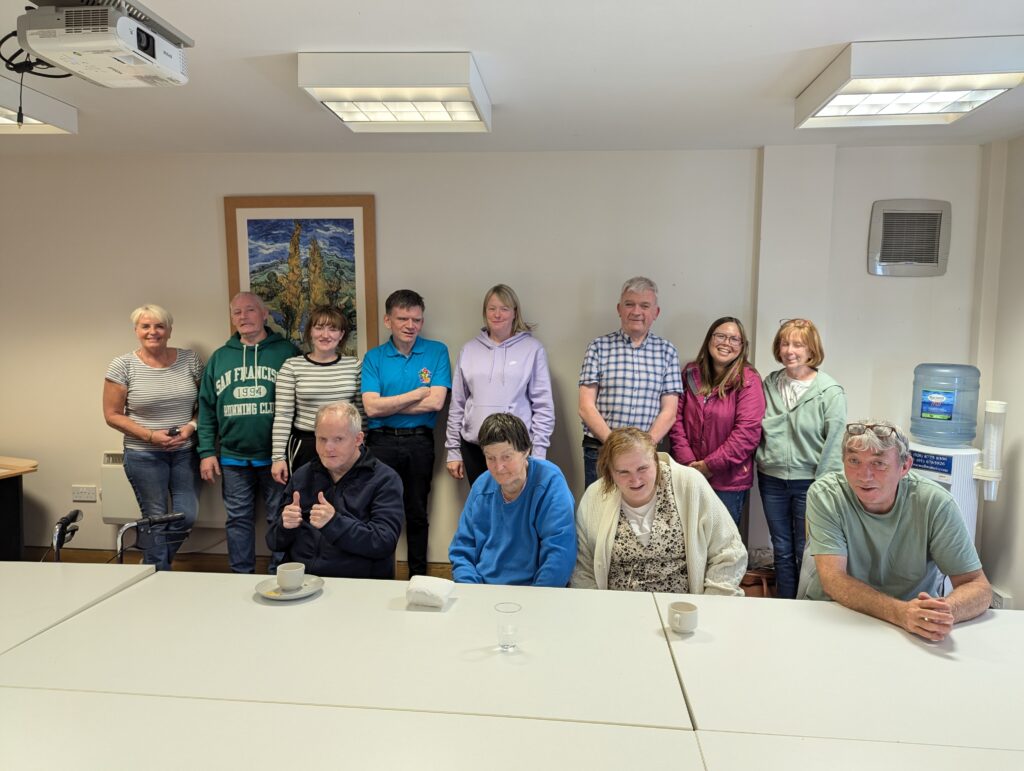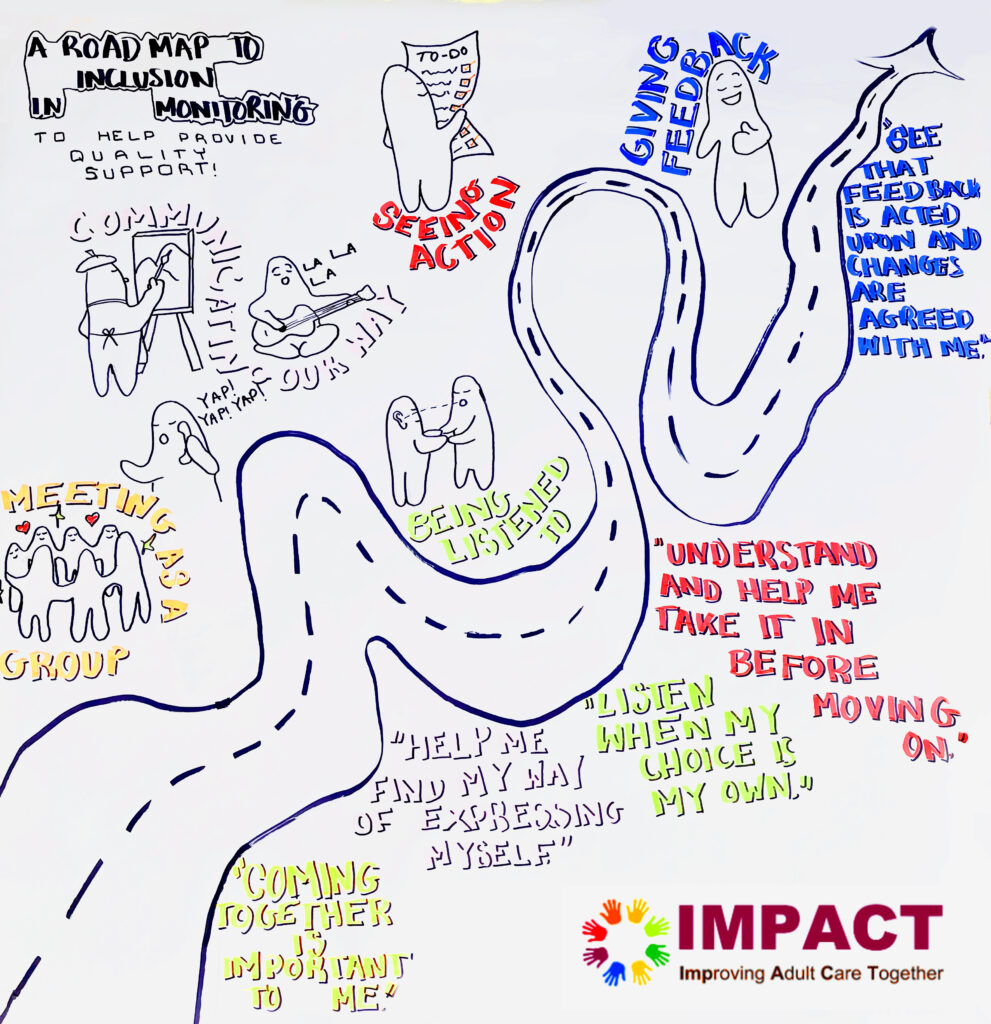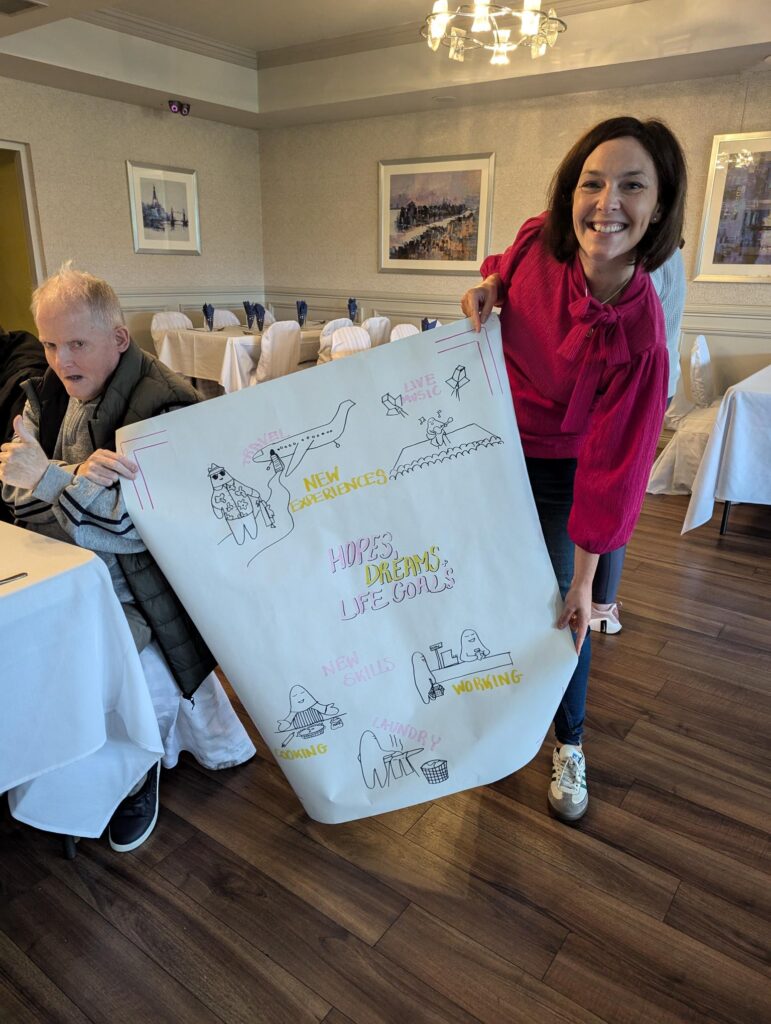Enhancing choice and control for people with a learning disability
Project Background
This project sought to change practice for people with a learning disability who are less often included in the monitoring and inspection process. Starting with internal monitoring for one organisation in Northern Ireland, Positive Futures, the work has potential to be scalable to other learning disability service provider organisations and to the external monitoring and inspection process. Working alongside the IMPACT Facilitator were The Incredibles, a newly formed co-production group at Positive Futures who hope to take this work forward.



IMPACT Factfile
- Year: 2024 – 2025
- Delivery Model: Facilitator
- Four Nations: Northern Ireland
- Themes:
- Resources:
Evidence Review
To enhance choice and control for individuals with learning disabilities, several recommendations emerge from the literature:
- Flexible, evolving person-centred planning
- Empowering individuals with learning disabilities to take control of their lives
- Staff training and broader organisational culture
- Community inclusion
Engagement and Findings
The concepts of choice and control are central to learning disability practice, yet evidence of implementation can be patchy with minimal evidence in some areas. This includes the area of involvement by people with a learning disability in the internal monitoring process of their support organisation. The project aimed to support Positive Futures to extend their work in this are by increasing regular involvement in the monitoring of quality of support. This would begin a co-production process that would enable Positive Futures to develop their own internal tool to guide this process both internally and to aid external inspection.
What did we learn from the project?
The monitoring process was not fully understood and often used complex terms; this impacted willingness to take part.
It was helpful and enjoyable to listen to the experiences of others too, even visiting others homes to hear their views.
It was important to talk about what mattered to each person, going beyond the day to day quality assurance of the project to bring in a more person centred approach.
The feedback loop must be closed so that action and any changes are communicated quickly.
Anonymised feedback should still be possible along with the opportunity to include individuals who were not confident, or able, to contribute views verbally.
Inspection and monitoring was not always viewed as their role, rather it was a senior responsibility.
A peer evaluation model can be helpful that involves a person with a learning disability trained to peer review the quality of other supported living services.
That they value the use of co-designed questionnaires and reports.
It can be challenging to speak to everyone who wants to be involved on an individual basis.
Unannounced visits, although necessary, meant that some people were out of their accommodation on the day, or did not feel prepared enough to engage.
Host Organisation: Positive Futures
Positive Futures provide a wide range of innovative services for children and adults with a learning disability, acquired brain injury or autism, and their families.
We were impressed by how closely the IMPACT aims, approach and projects aligned with our values and mission. We are always looking to improve our own support and the work that IMPACT does in terms of co-production and implementing evidence-based practice in adult social care seemed a perfect fit to support our organisational learning and development work.
Meet our Facilitator: Laura Doyle

Laura Doyle
I am based in Positive Futures, a leading charity based in Northern Ireland and Republic of Ireland who supports people with learning disability, acquired brain injury or autism. The project I am working on involves exploring practical improvements for individuals and their families in increasing choice and control in different aspects of their lives.
As a busy practitioner working within adult social care, it is often difficult to access applied research, but equally as a researcher there can be barriers when implementing evidence into practice.
The new IMPACT Centre is a unique opportunity to transform how we drawn on and implement evidence by adopting a collaborative approach with universities, partner organisations and people with lived experience. This is an opportunity of a lifetime, and I am excited to be part of it.
IMPACT has the potential to contribute to systemic and cultural changes which is much needed within adult social care. However, such change is not possible without supporting people who draw on care and support or of care staff to be given the opportunity to form and express their views. IMPACT offers this space. This is important so that governments, policy and decision makers listen to and act upon the voice of the people we support.
